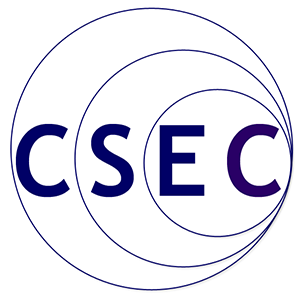Past Projects
SLURRY MAX: Holistic decision-support system for organic slurry storage and treament techniques for maximum nutrient use efficiencies
Funders: Sustainable Agriculture Research and Innovation Club (BBSRC/NERC)
Research Staff (Lancaster): Claire Waterton, Emma Cardwell, Lisa Norton
SLURRY MAX is an interdiscipliary project headed by Claire Waterton. It examines the practices of slurry storage and treatment on farms, the environmental goods and bads of the nutrients (most notably nitrogen and phospherous) in slurry, and how the agricultural industry and regulators support farmers in managing this difficult substance.
Hypermetabolic N: exploring the social life of nitrogen in UK agroecologies
Funders: N8 Agrifood
Research Staff (Lancaster): Claire Waterton, Emma Cardwell, Lisa Norton & Carly Stevens
Claire Waterton and Emma Cardwell (alongside Lisa Norton, Carly Stevens and Julia Cooper) look at the complex role of artificially fixed nitrogen in UK food systems and nutrient cycles.
Understanding and Acting within Loweswater: A Community Approach to Catchment Management
Read about the impact of Claire’s work
ARGONA (Arenas for Risk Governance)
Funders: European Commission
Research staff (Lancaster): Bronislaw Szerszynski, Larry Reynolds
Argona is a project within the sixth Euratom research and training Framework Programme (FP6) on nuclear energy of the European Commission. The project, which started in November 2006 and will last for three years, is coordinated by the Swedish Nuclear Power Inspectorate and managed by Karita Research.
Project website: http://www.argonaproject.eu/
CARGO (Comparison of Approaches to Risk Governance)
Funders: European Commission
Research staff (Lancaster): Bronislaw Szerszynski, Larry Reynolds
The CARGO Project (Comparison of Approaches to Risk Governance) is organized within the Science and Society area of the European Union Sixth Framework Programme. The project, which started in June 2006 and will last for two years, is coordinated by Karita Research.
Project website: http://www.cargoproject.eu/
Taxonomy at a Crossroads: Science, Publics and Policy in Biodiversity
Funders: ESRC
Research Staff: Rebecca Ellis, Claire Waterton and Brian Wynne (Lancaster University), and Johannes Vogel, Mark Carine, Karen James (Natural History Museum)
Taxonomy at a Crossroads is a sociological and anthropological study of a real-time shift in the taxonomic sciences. It developed from a recognition that, in scientific, social and cultural terms, the taxonomic community are presently undergoing a series of quite fascinating changes. The project focusses in particular upon the implications the introduction of new DNA Barcoding techniques might have for the taxonomic, public and biodiversity policy communities.
Project website: http://www.lancs.ac.uk/fass/projects/taxonomy/
Databases, naturalists and the global biodiversity convention
Funders: ESRC Science In Society Project 2005-2006
Research Staff: Claire Waterton, Rebecca Ellis and Maria Pacha
The construction of novel forms of information and communication technologies (ICTs) has, since the 1992 Global Biodiversity Convention, been seen to be a matter of urgency in the biodiversity policy domain. The proposed research will scrutinise two very different biodiversity databases – the National Biodiversity Network (NBN) and ‘Mapmate’ – both currently under construction and use in the UK, set within the wider global biodiversity policy context. The research will explore the different implicit visions of science, society and environmental governance embedded within these two database technologies. However, it will also aim to explore, with database technicians, data contributors and database users the potential fruitfulness of intermingling what appear to be two distinctive philosophies of constructing information about the natural world. In doing so, the research aims to explore ways in which field naturalists (of which there are several thousand amateur practitioners in the UK) might become part of a wider global polity regarding biodiversity protection.
Project website: http://www.lancs.ac.uk/fass/projects/sis
 Centre for Economic and Social Aspects of Genomics (CESAGen)
Centre for Economic and Social Aspects of Genomics (CESAGen)
CSEC members are involved as Principle Investigators in a number of CESAGen flagship projects and other research activities – see the Centre’s website.
Project website: http://www.genomicsnetwork.ac.uk/cesagen/
Amateurs as Experts: Harnessing New Knowledge Networks for Biodiversity
Funders: ESRC
Grant holders: Robin Grove-White, Claire Waterton, Johannes Vogel (NHM), Gill Stevens (NHM), Bridget Peacock (NHM)
Research staff: Rebecca Ellis
‘Amateurs as Experts’, a collaboration with the Natural History Museum, is a three year study of amatuer naturalists, biodiversity scientists and policy makers involved in the UK Biodiversity Action Plan process. The aim is to throw light on the ‘knowledge politics’ inherent in current initiatives to enroll new ‘actors’ ( from amongst 100,000 active UK amateur naturalists) into the formal UK biodiversity policy process.
Project website: http://www.lancs.ac.uk/fss/projects/ieppp/amateurs
Nanotechnology, Risk and Sustainability: Moving Public Engagement Upstream
Funders: ESRC
Grant holders: Robin Grove-White, Phil Macnaghten, Brian Wynne
Research Staff: Matthew Kearnes
A new generation of potentially controversial technologies is emerging, posing novel challenges for processes of democratic debate and regulation (Joy 2000, Better Regulation Task Force 2003). Nanotechnology looks set to become the next focus for heated debate about the relationship between new technologies, risk and sustainability (ETC Group 2003, Burke 2003). This project focuses on three specific applications of nanotechnology – in healthcare, computing and cosmetics – so as to open up wider ethical and socio-political issues for public discussion. The project asks how, in the light of recent experiences with biotechnology, socially and environmentally-sensitive governance processes might be developed, which can improve the contribution of nanotechnology to sustainable development, by moving the site of public involvement further ‘upstream’ within R&D processes.
Documents for Download
- View proposal (pdf format)
- Project Summary
- ‘Science as Culture’ paper
- ‘Science Communication’ paper
- ‘See Through Science’ pamphlet
- ‘Public Value of Science’ pamphlet
PAGANINI (Participatory Governance and Institutional Innovation)
Funders: European Union
Grant holder: Bronislaw Szerszynski
Research staff: Larry Reynolds
PAGANINI is investigating the ways in which participatory practices contribute to problem solving in a dynamic cluster of policy areas concerning the ‘politics of life’: medicine, health, food, energy, and environment. In these areas traditional mechanisms of governance can be seen to hamper policymaking and much institutional experimentation has been taking place. The overall objectives of PAGANINI are: to analyse how fields of governance related to the ‘politics of life’ constitute a challenge for citizen participation and the generation of active trust; to investigate the changing role of civic participation; to illuminate how citizen participation can be made more effective and appropriate; and to contribute to institutional re-design. The Lancaster team will be carrying out a case study on the role of participation in the regulation of the use of genetically modified organisms (GMOs) in agriculture.
Project website: http://www.paganini-project.net
CoRWM public consultation work
Funders: Committee on Radioactive Waste Management
Grant holder: Jane Hunt
Research staff: Bill Thompson, Noel Cass
Reflecting their interest in public consultation and participation in relation to environmental policy development, Jane Hunt, Bill Thompson and Noel Cass have undertaken several pieces of work for the Committee on Radioactive Waste Management. CoRWM has been established by Government to produce recommendations on radioactive waste management and state a strong commitment to what they call ‘public and stakeholder engagement’. CSEC’s work for CoRWM includes advising on consultation strategies, reporting of responses to consultation, and undertaking focus groups and two rounds of four citizens’ panels, all addressing questions posed by CoRWM.
ISOLUS
Funders: Ministry of Defence
Grant holder: Jane Hunt
Research staff: Bill Thompson, Noel Cass
The Interim storage of Laid Up Submarines – Project ISOLUS – is an MoD project to determine the management of radioactive wastes from nuclear powered submarines, until such a time as a ‘final solution’ might become available. Project ISOLUS’s remit is to find a ‘publicly acceptable’ interim management solution, and to this end the MoD commissioned CSEC to undertake two rounds of consultation, including focus groups, citizens panels, stakeholder panels, open meetings, and written and web based consultation. Current activities involve providing the Secretariat for the MoD’s multi-stakeholder advisory group, as well as maintaining the website. Jane Hunt, Bill Thompson and Noel Cass are involved in this work.
